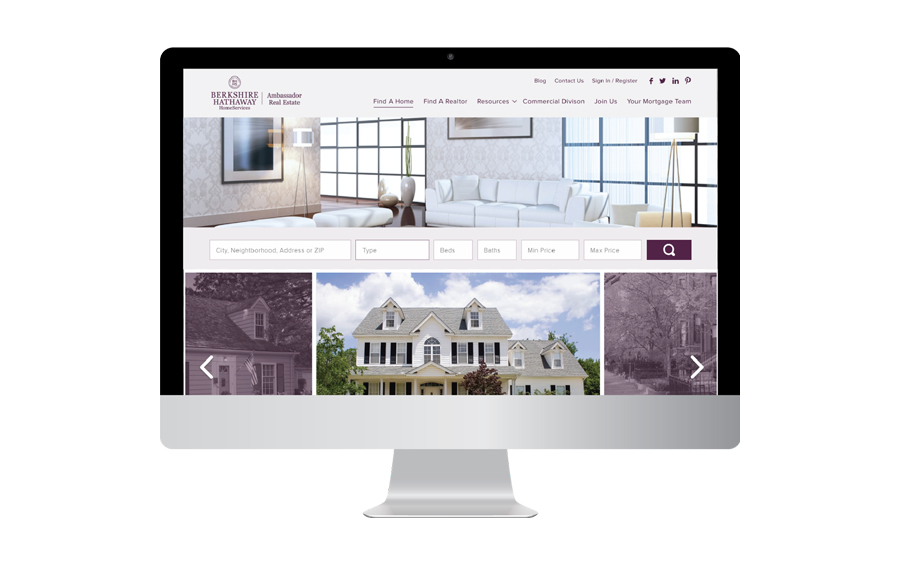Success starts with the first click. For many of today’s real estate professionals, that first click is determined by the quality of their website. Building a website might be easy to accomplish today, but building a successful website for the long-term can be a challenge.
===
Here are our top 5 essential steps you need to do in order to create a successful real estate website.
1. Choose A Reliable Website Host
The first thing your real estate website needs is a reliable host. Website hosts are businesses that provide server space to individuals and other businesses for rent (i.e GoDaddy or Bluehost). Your real estate website is hosted on their hardware and typically supported by the provider to prevent downtime or DDOS attacks. The hardware they use will have a direct impact on your website performance.
Factors like how fast your website responds or security certificate prompts can have a serious effect on customer impressions. A reliable host provides you with the foundation you need to start building your brand’s online presence.
2. Look For An Easy Design Tool
Speaking of software, you’ll need a comprehensive CMS (content management system) to build your real estate website. The better the interface, the more creative control you and your team will have. Propertybase Websites, powered by Boston Logic, offer an abundance of features that ensure you have a designer-website up and running, such as:
- 100% responsive design
- Customizable lead capture forms
- Dynamic market reports/insights
- IDX Search
- MLS integration
3. Provide Value with Amazing Content
Your real estate website needs to serve a purpose and provide value to its visitors – as much as a website is for your brand, you have to remember the audience. One of the best ways to accomplish this is to make pertinent real estate information easily accessible on the website. Include information such as community information (schools, parks, transportation, etc.). The more details you provide, the better the communication.
Plus, the more value in your content, the higher your website will rank in search engine results. It’s important to give much consideration to the quality of content your website provides. When your team creates more high quality content, you provide more avenues for potential leads and make your brand stand out amongst the pack.
4. Take Advantage of Agent Websites
Building trust with new leads is critical to the conversion process. That’s why many real estate businesses create individual websites for each of their agents. The website provides an opportunity to highlight experience, skills, and reviews for new leads.
According to research by PowerReviews (with assistance by Northwestern University), reviews have incredible influential power on customer conversion. By presenting this past experience to new leads, you’re providing a foundation of trust for new customer relationships.
5. Optimize Workflow with Integrated Tools
In today’s real estate landscape, you need to move fast to stay ahead and technology helps…a lot! Consider looking for a real estate CRM and website combo that integrate, allowing you to include MLS listings, lead capture forms, property search, agent profiles and more.
Owners and agents can be given access to reporting features that provide real time analytics of lead and agent activity. These reports can provide crucial insights to improve workflow processes and improve your website’s performance. See how well customers react to campaigns, make sure agents follow up with new leads, and look for trending behavior to help optimize future decisions.
Build A Winning Real Estate Website With Propertybase
Building a real estate website is easier than before with Propertybase. If you’re looking for a real estate CRM to give your team an advantage, try Propertybase for yourself and learn what that advantage feels like. Click Request Demo at the top of this page or email marketing@propertybase.com.
